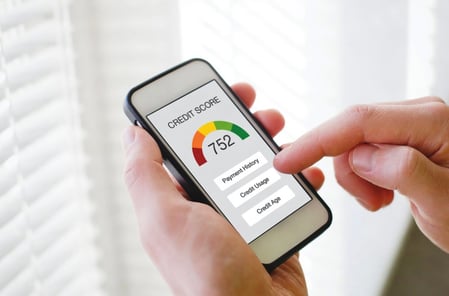Buying a home equates to several moving parts - and it is easy for first-time homebuyers to make mistakes. From not checking credit reports to skipping the home inspection, many oversights can occur when purchasing your first home.
First-Time Homebuyers in NORTHERN VIRGINIA: mistakes to avoid
 Source: fool.com
Source: fool.com
Buying a home is a big deal, and there are many mistakes that anxious first-time homebuyers easily make. Some of the errors are small, and some can lead you to purchase a home that you wish you hadn't. We have compiled a list of common mistakes to avoid as a first-time homebuyer.
Not Checking Your Credit Report
One of the most common mistakes first-time homebuyers make is not knowing their credit score. Even if you know you have stellar credit, it is essential to know and understand your score before applying for a mortgage. Your credit score directly impacts the interest rate lenders will offer you.
 Source: drummondbank.com
Source: drummondbank.com
After you have checked your credit score, request a copy of your credit report. Check it thoroughly to ensure there are no inaccuracies. Mistakes on your credit report can cause you a higher interest rate or a loan denial.
AnnualCreditReport.com offers a free credit report from all three main credit bureaus once a year. If you find any errors in your report, you can follow the steps and dispute them.
Not Getting Quotes from Multiple Lenders
Buying a home is most likely the most significant investment you will make in your life. For the next 15 to 30 years, you will be paying back hundreds of thousands of dollars plus interest. You must take your time and find the best deal.
 Source: investopedia.com
Source: investopedia.com
When comparing loans, you must look past the quoted interest rate and focus on the annual percentage rate (APR). The APR is the loan's actual cost, which is included in your application.
Although some lenders offer lower interest rates than others, be careful when comparing loans because many lenders who provide low-interest charge higher fees. By comparing APRs, you will have a clearer picture of the costs of the loans.
Not Making a Significant Down Payment
The larger the down payment you make, the less money you will need to borrow, and the more equity you will have in your home. A larger down payment equates to a lower loan-to-value ratio (LTV). A lower LTV means you are less of a risk to lenders and most likely will qualify for a more preferable rate. Making a larger down payment means you will not only pay less each month, but you will also significantly reduce the amount of interest you pay on your loan.
 Source: consumerscu.org
Source: consumerscu.org
Not Touring Enough Homes
The home buying process can feel like an eternity. First-time homebuyers are often itching to get out of their rental and into their new house. This impatience can easily cause you to rush into a decision that results in buyer's remorse.
 Source: listwithclever.com
Source: listwithclever.com
To ensure you purchase the right house, take your time looking at homes in your desired areas. Tour several homes in your price range, even those you don't think you are interested in. Looking at many homes throughout the DC metro area will give you more confidence when making your final decision. Here's a great resource to help you when touring and attending open houses
Skipping the Home Inspection
Once you have your loan approval, the next step is finding your home. The home inspection is an additional charge that you may be tempted to skip out on. However, if you buy an existing home, significant repairs may not be visible to the naked eye. A home inspection can save you thousands of dollars on home repairs and help with the negotiation of the home if repairs are required.
 Source; topnotchinspectors.net
Source; topnotchinspectors.net
Steer Clear of First-Time Home Buyer Mistakes
Understandably, the excitement of buying your first home can have you rushing through the process. Before you decide to purchase a home, give yourself ample time to avoid easily made mistakes.
Khalil El-Ghoul
Khalil El-Ghoul is a seasoned real estate broker actively helping sellers and buyers throughout Northern Virginia, DC, and Maryland. Known for his no-nonsense approach, Khalil combines expert market insight with honest, objective advice to help buyers and sellers navigate every type of market—from calm to chaotic. If you’re looking for clarity, strategy, and a trusted partner in real estate, he’s the one to call. 571-235-4821, khalil@glasshousere.com







